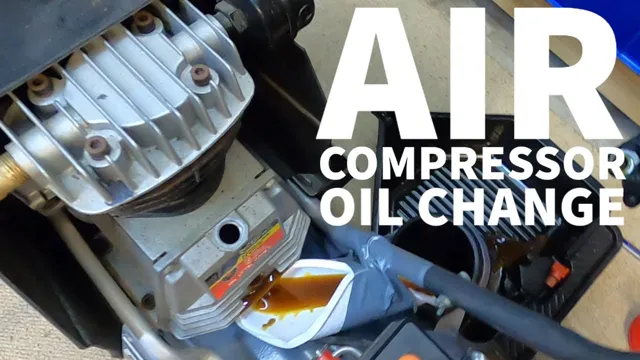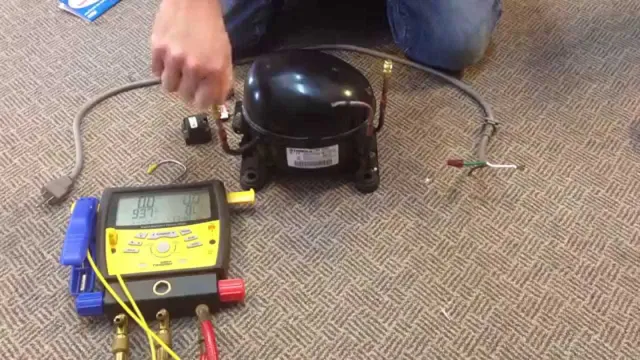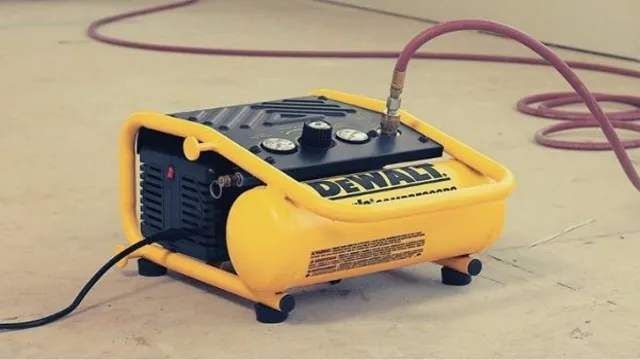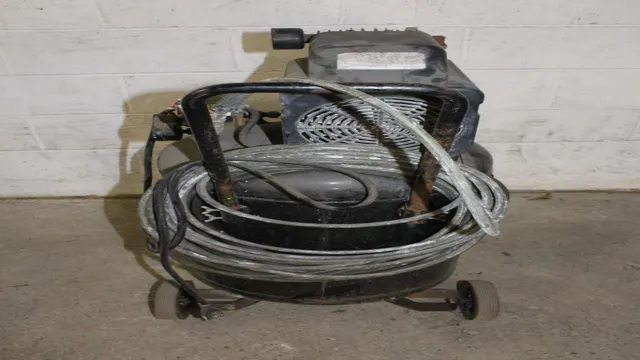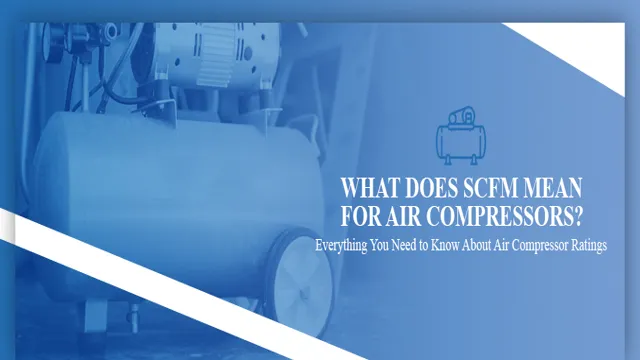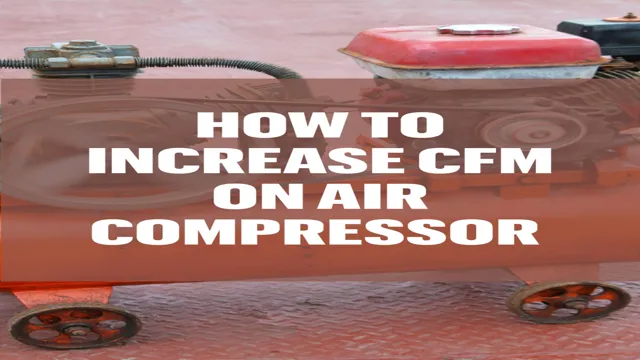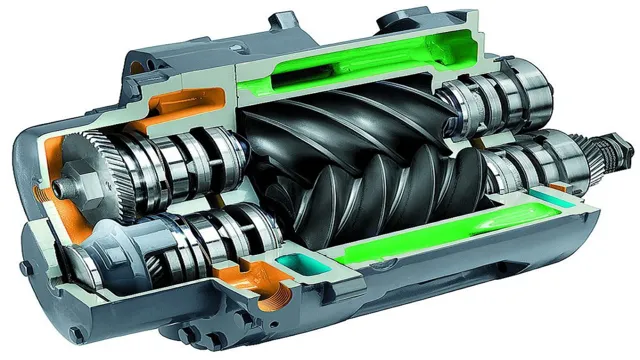How to Check If Air Compressor is Working: Tips and Tricks to Ensure Optimum Performance
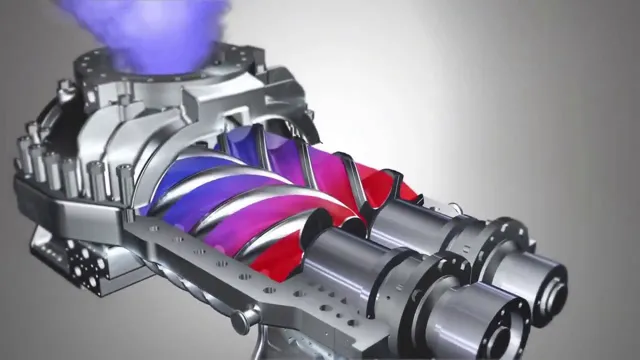
When it comes to power tools, air compressors are among the most valuable and versatile devices that any DIY enthusiast or professional can have. However, just like any other tool, air compressors require upkeep and regular maintenance. One of the most important aspects of keeping your air compressor in working condition is by ensuring that it is functioning properly.
This means checking if it is pumping air, if there are any leaks, and if it is producing the correct amount of pressure. In this blog post, we’ll provide you with tips and tricks to help you determine if your air compressor is working as it should be.
Introduction
If you’re wondering how to check if an air compressor is working, there are a few steps you can take to determine its operational status. The first and most obvious step is to listen for any sounds coming from the machine. If you can hear the compressor running, it’s likely working correctly.
But if there’s no sound at all, it’s possible there’s an electrical problem or the motor could be faulty. Another way to check is to inspect the pressure gauge. When the compressor is turned on, the gauge should show an increase in pressure.
If it remains at zero, there may be an issue with the pressure switch or a leak in the system. It’s also a good idea to examine the air lines and connections to ensure there aren’t any visible leaks or damage. By following these steps, you’ll be well on your way to understanding if your air compressor is fully functional or in need of repair.
What is an Air Compressor?
An air compressor is a machine designed to produce pressurized air for various applications. It’s a versatile tool that can be used for inflating tires, powering pneumatic tools, spray painting, and many other tasks. Essentially, when you need a concentrated stream of air, an air compressor is essential.
They work by pulling air into a chamber, compressing it and then releasing it under high pressure. The pressure can be adjusted to meet specific needs and requirements. Air compressors come in various sizes, shapes, and types, from small portable models to large industrial units that can power entire factories.
Overall, they’re an essential tool that has myriad uses, making them a must-have for anyone in need of a reliable and powerful source of compressed air.
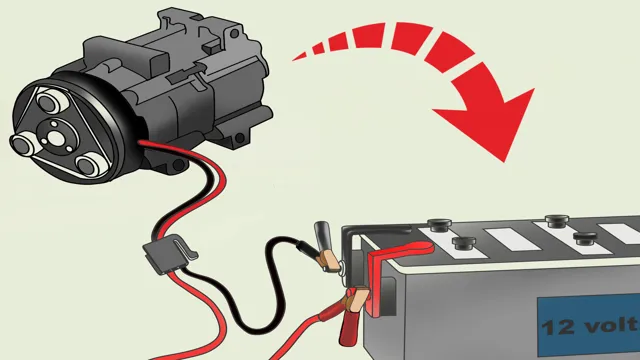
Why is it Important to Regularly Check Your Air Compressor?
Air Compressor Introduction: Air compressors are commonly used in various industries such as automotive, construction, and manufacturing. They are essential in providing the required air pressure to operate different tools and equipment. However, it is vital to regularly inspect and maintain your air compressor to ensure it operates efficiently and safely.
Neglecting regular check-ups may result in unexpected breakdowns, which can cause the project to come to a halt. Moreover, a poorly maintained air compressor can lead to energy wastage, safety hazards, and even damage to the environment. Therefore, it is crucial to prioritize inspecting and servicing your air compressor to enhance its longevity and increase productivity.
Steps to Check Your Air Compressor
If you’re unsure whether your air compressor is working properly, there are a few steps you can take to check. Firstly, make sure that the power source is connected and that the compressor is switched on. Next, inspect the pressure gauge, which will give you an indication of the amount of pressure that the compressor is producing.
If the reading is within the range specified by the manufacturer, then your compressor is most likely working correctly. However, if the gauge is not providing a reading, or if the reading is too high or too low, then there may be an issue with the compressor. You should also listen for any unusual sounds or vibrations coming from the machine, which could indicate a problem with the motor or other components.
By taking these steps, you can identify any potential issues with your air compressor and take the necessary steps to ensure that it continues to function properly.
Step 1: Inspect Your Air Compressor
When it comes to maintaining your air compressor, the first step is to inspect it thoroughly. This may seem like a no-brainer, but it’s easy to overlook certain things that could cause problems down the line. Start with checking the overall condition of your compressor.
Look for signs of wear and tear such as cracks, dents, or leaks. If you notice any of these issues, you’ll want to address them immediately before they become bigger problems. Next, check the oil level and quality.
Make sure it’s not too low or too dirty, as this can impact the compressor’s performance. Finally, inspect the air filter to see if it’s clogged or dirty, which can also affect the performance of your compressor. By taking the time to properly inspect your air compressor, you’ll ensure it runs efficiently and lasts longer.
Step 2: Check the Power Source and Cables
When checking your air compressor, one of the first steps you should take is to check the power source and cables. Make sure your compressor is properly plugged in and the outlet is functioning correctly. Check the power cord for signs of wear or damage, and replace if necessary.
If your compressor uses an extension cord, ensure that it is rated for the correct amperage and length for your machine. Faulty cables can cause power disruptions or even pose a safety risk, so be sure to take this step seriously. Remember, a chain is only as strong as its weakest link.
You don’t want something as simple as a faulty cable to prevent your compressor from operating correctly and efficiently. So, spend a few minutes checking your power source and cables for peace of mind and optimal performance.
Step 3: Check the Air Filter
When it comes to checking your air compressor, it’s important to make sure you’re getting the most out of your investment by keeping an eye on the little things. One crucial component of your compressor is its air filter, which helps keep dust, debris, and other contaminants out of your compressor’s system. To check the filter, start by locating it beneath the compressor’s air intake.
Depending on your model, the filter may be easily accessible or require some disassembly for removal. Once you have access to the filter, examine it closely for signs of damage or heavy buildup. If the filter is dirty, it’s time to clean or replace it to ensure optimal performance and prevent damage to your compressor.
By taking the time to check your air filter regularly, you can extend the life of your compressor and enjoy worry-free operation for years to come.
Step 4: Check the Oil Level
When it comes to maintaining your air compressor, checking the oil level is crucial. It ensures that your compressor operates efficiently and effectively. The easiest way to check the oil level is by using the sight glass.
First, make sure that the compressor is turned off and has cooled down. Then, locate the sight glass, which is usually located on the side or top of the compressor. It will have a clear, glass window that allows you to see the oil level.
If the level is below the halfway mark, add more oil until it reaches the recommended level. Be sure to use the type of oil specified in your compressor’s manual. It’s important to check the oil level on a regular basis, so consider adding it to your maintenance checklist.
By doing so, you’ll be able to catch any issues before they cause serious damage to your compressor. So, don’t forget to check your air compressor’s oil level regularly, and keep your machine running smoothly!
Step 5: Turn on the Air Compressor and Listen for Sounds
Once you’ve plugged in your air compressor and checked for any leaks, it’s time to turn it on and listen for any strange sounds. A properly functioning air compressor should sound relatively quiet, with minimal hissing or shaking. If you hear any loud grinding or knocking noises, it’s best to turn off the compressor and investigate the issue before proceeding any further.
This could be a sign of a serious mechanical problem that needs immediate attention. Additionally, pay attention to the air pressure gauge and ensure that it’s reading the correct pressure for your specific application. By following these simple steps, you can ensure that your air compressor is working properly and safely, allowing you to tackle any project with confidence.
Conclusion
In conclusion, checking if your air compressor is working is a breeze! Just listen for the hum of the motor, feel the air pressure with your hand, and inspect your equipment for any visible damage. With these simple steps, you can quickly determine if your compressor is up to snuff or if it’s time for a little maintenance. So, don’t get blown away by uncertainty – go ahead and put your compressor to the test today!”
Why Regular Check-Ups are Crucial
Regular check-ups are crucial for ensuring the efficient functioning of any industrial equipment, including air compressors. Taking care of your air compressor can extend its lifespan and prevent sudden breakdowns that can cause significant losses. While it’s recommended to schedule professional maintenance and repair services, checking your air compressor regularly is equally important.
There are a few steps you can take to check the performance of your compressor. Firstly, check the oil level and quality regularly, and top it up if necessary. Secondly, inspect the air filters and clean or replace them as appropriate to prevent contaminants from reducing performance or causing damage.
Thirdly, inspect the pressure gauges and valves to ensure accurate reading and proper functioning. Finally, listen for any unusual noises, vibrations, or leaks that may indicate a problem with the compressor. By performing these simple checks, you can maintain the optimal performance of your air compressor, thereby avoiding downtime, higher maintenance costs, and lower productivity.
Final Thoughts
In conclusion, checking your air compressor is an important task that should not be overlooked. By following the steps outlined in this article, you can ensure that your compressor is functioning properly and efficiently. Remember to check the oil and filter regularly, inspect and clean the intake vents, and monitor the pressure and temperature readings.
By doing so, you can extend the life of your compressor and prevent potential damage or safety hazards. Always prioritize safety and consult a professional if you have any concerns or questions regarding your air compressor. With these simple steps, you can keep your compressor running smoothly and enjoy the benefits of reliable compressed air.
FAQs
What are the signs that indicate the air compressor is not working properly?
The signs that indicate air compressor issues include: decreased airflow or pressure, unusual noises, leaks, and tripped circuit breakers.
How often should I inspect my air compressor to ensure it’s working properly?
A visual inspection of the air compressor should be conducted weekly or monthly, including checks for loose belts, oil leaks, and unusual sounds.
What should I do if my air compressor fails to start?
In case of air compressor failure to start, check the power source, examine the internal electrical components, and inspect the pressure switch, motor, and capacitor.
Is it normal for my air compressor to produce an unusual smell?
No, strange smells coming out of the air compressor can indicate an oil leak or overheating motor, signifying that you need to inspect and maintain the unit.
Do I need to replace my air compressor after a certain period?
Air compressors can last up to 15 years if adequately maintained; however, individual models may need replacement earlier than that depending on usage and maintenance.
What should I do if my air compressor is producing an unusual noise?
If your air compressor produces strange sounds such as rattling or clanking, turn it off immediately, examine the internals, tighten loose parts, and lubricate the necessary components.
How do I check the pressure output of my air compressor?
To check the pressure output of your air compressor, connect a tire pressure gauge to the regulator or unloader valve, then turn on the compressor to observe the gauge’s reading.

